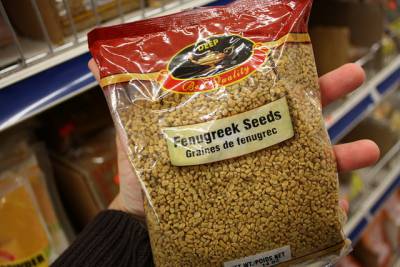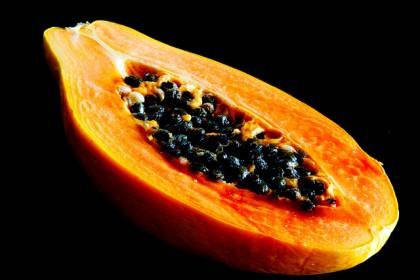
Your quest for a natural home remedy stop here. Use fenugreek for hair growth with these simple recipes.
Fenugreek leaves and seeds are extensively used for culinary purposes in India. This bitter tasting spice has vitamins and nutrients that have excellent benefits for your skin, health and hair.
With increasing pollution and low nutritional diet, your scalp fails to hold hair. Thus, most people complain about hair fall, dandruff and brittle hair.
Why Fenugreek Seeds for Hair Growth?
This grandma’s remedy has prominent nutrients packed in it. You can add other natural ingredients to this mask to make it more effective.
- Also known as methi in Hindi, paste of fenugreek seeds can treat various ailments.
- Nicotinic acid in this mask promotes hair growth.
- Lecithin makes the hair follicle strong and nourishes it.
- Potassium housed in fenugreek seeds reduces premature grey hair.
- Assorted properties packed in this homemade hair mask strengthen your hair from the root and stimulate hair growth.
- Protein and vitamin C helps to cure baldness and boost immune system respectively.
Note: This inexpensive home remedy may work only when you internally supply essential vitamins to your body.
How to Use Fenugreek for Hair Growth?
Invest some time and get quality fenugreek seeds to try this simple recipe.
- Soak fenugreek seeds over night and grind them to make paste.
- Add 1 teaspoon of coconut oil or increase depending the mask.
- Mix the mask thoroughly and apply it over prewashed scalp.
- For next 30 minutes cover your head with unused cloth or shower cap.
- Rinse it off with water.
Apple cider vinegar and fenugreek
- Take fenugreek powder and add 1 teaspoon of Apple cider vinegar to it.
- Mix thoroughly.
- Before applying, wash your scalp with water to remove impurities.
- Towel it dry and apply the fenugreek mask.
- After 30 minutes, rinse it off.
Fenugreek and castor oil
Mix 2 tablespoons of methi powder with 1 tablespoon of castor oil. Wash your scalp and apply this mask over it.
Cover the scalp for 20-30 minutes and then rinse it off.
Fenugreek seeds and leaves
Wash curry leaves and blend with fenugreek powder to form smooth paste. Apply it over the scalp.
For dandruff, mix one tablespoon of lemon juice to fenugreek paste and apply evenly over the scalp.
Note: Test before using it over the hair. Make sure you aren’t allergic to any of these ingredients.
Isn’t it easy and inexpensive to use fenugreek for hair growth? But, make sure you drink enough water and take vitamin rich diet.

